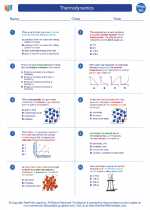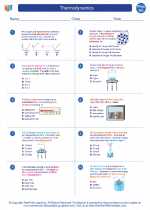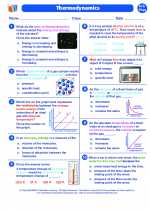Human Impact in Physics
Human impact refers to the effect that human activities have on the environment, ecosystems, and natural resources. In the field of physics, human impact is often studied in the context of energy consumption, pollution, and the implications of technological advancements on the environment. Understanding human impact is crucial for developing sustainable practices and mitigating the negative effects of human activities on the planet.
Key Concepts to Understand
Energy Consumption:
Humans consume vast amounts of energy for various activities, including transportation, heating, cooling, and manufacturing. The study of energy consumption involves understanding the sources of energy, such as fossil fuels, renewable energy, and the efficiency of energy conversion and utilization.
Pollution:
Human activities produce pollutants that can have detrimental effects on the environment and human health. Understanding the types of pollutants, their sources, and their impact on the atmosphere, water bodies, and soil is essential in addressing environmental sustainability.
Technological Advancements:
Advancements in technology have led to significant changes in how humans interact with the environment. This includes the development of sustainable technologies, as well as the potential risks associated with emerging technologies, such as electromagnetic radiation and electronic waste.
Study Guide
As you study the topic of human impact in physics, consider the following key areas:
- Research and understand the various sources of energy that humans utilize, including fossil fuels, nuclear energy, solar power, wind energy, and hydroelectric power.
- Examine the environmental impact of different energy sources, considering factors such as greenhouse gas emissions, air and water pollution, and land use.
- Explore the concepts of energy conservation and efficiency, including the role of energy-efficient technologies and practices in reducing human impact.
- Analyze the types of pollutants generated by human activities, including air pollutants (e.g., particulate matter, nitrogen oxides), water pollutants (e.g., heavy metals, pesticides), and their effects on ecosystems and human health.
- Investigate the principles of sustainable development and the potential for mitigating human impact through renewable energy, recycling, and waste management.
- Examine the implications of technological advancements on the environment, such as the environmental impact of electronic devices, electromagnetic fields, and the disposal of electronic waste.
By understanding the key concepts and conducting in-depth research on these areas, you will develop a comprehensive understanding of human impact in physics and its implications for environmental sustainability.
.◂Physics Worksheets and Study Guides High School. Thermodynamics

 Worksheet/Answer key
Worksheet/Answer key
 Worksheet/Answer key
Worksheet/Answer key
 Worksheet/Answer key
Worksheet/Answer key
